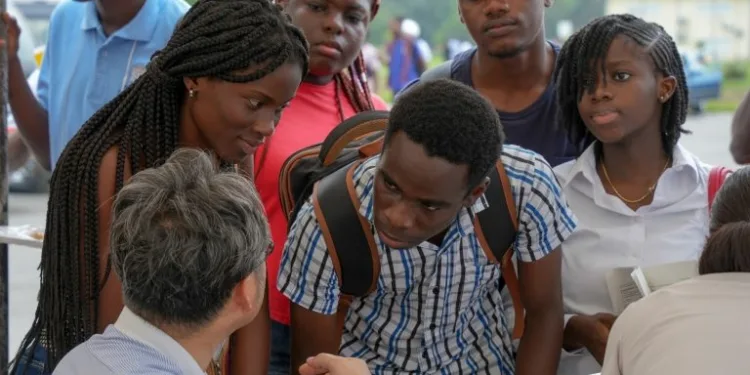The Netherland has issued a directive to several thousand African students who sought refuge in the country following Russia’s invasion of Ukraine in 2022.
They have been notified to vacate the country by the end of this week, with the warning that failure to comply may result in expulsion. Those affected are mainly from Africa, the Middle East and India.
Following a ruling by the high court of the Netherlands in January, a significant policy shift has emerged regarding Ukrainian nationals and residents who sought refuge in the country amid Russia’s invasion of Ukraine in 2022.
This ruling revoked the European Union policy that previously granted temporary settlement rights to both Ukrainian nationals and residents.
Consequently, this decision no longer applies to temporary residents, including the African students who found refuge in the Netherlands.
As a result, these individuals have been instructed to leave the country by March 4, with the looming threat of forced deportation for those who fail to comply with the directive.
In recent weeks, a growing number of affected individuals, predominantly students and young workers from Ukraine, have assembled in the streets of Amsterdam to voice their opposition and protest against the decision.
They have expressed strong sentiments accusing the newly-elected far-right Dutch government of discrimination in their handling of the situation.
The protests reflect the frustration and challenges faced by this group as they grapple with the abrupt change in policies that directly impact their residency status and future in the Netherlands.
Also Read: African Students Now Turn to China as Study Destination
Here’s Why the Netherlands Are Expelling African Students and Other Third Country Nationale
In March 2022, amid the onset of the conflict in Ukraine, the Netherlands, along with other European Union member states, extended a welcoming hand to those seeking refuge from the war-torn region.
At that time, in alignment with a Temporary Protection Directive (TPD) issued by the EU, Ukrainian refugees and permanent residents were granted shelter for a stipulated period of two years, extending until March 4, 2024.
Additionally, the directive allowed for the possibility of permit extensions yearly, contingent upon the evolving circumstances and needs of the affected individuals.
In contrast to the approach adopted by several other European Union member states, the Netherlands opted not to undertake individual case assessments to differentiate between Ukrainian nationals and individuals holding temporary permits, including the thousands of students predominantly hailing from countries such as India, Nigeria, Morocco, and Egypt.
These students had established lives and pursued their academic endeavors in Ukraine for an extended period before the outbreak of conflict.
Consequently, this lack of differentiation has resulted in a situation where individuals who sought refuge in the Netherlands following the crisis find themselves facing the same directive deadline for departure, despite their unique circumstances and ties to Ukraine.
The Dutch government’s approach initially proved appealing, drawing thousands of third-country nationals to Dutch cities, where approximately 4,500 individuals were officially registered in municipalities throughout the country.
In response to the crisis, the government provided most of these individuals with accommodation in refugee centers, financial stipends, access to healthcare, and work permits, creating a temporary support system to help those affected by the conflict.
The Dutch government had previously declared its intention to terminate protection for third-country nationals in the early months of the preceding year.
Individuals in this category were notified through multiple letters to vacate their shelters and depart the country by September 4, 2023, or face forced expulsion.
However, this deadline was subsequently extended after some of the affected individuals challenged the Dutch government’s decision in council court.










